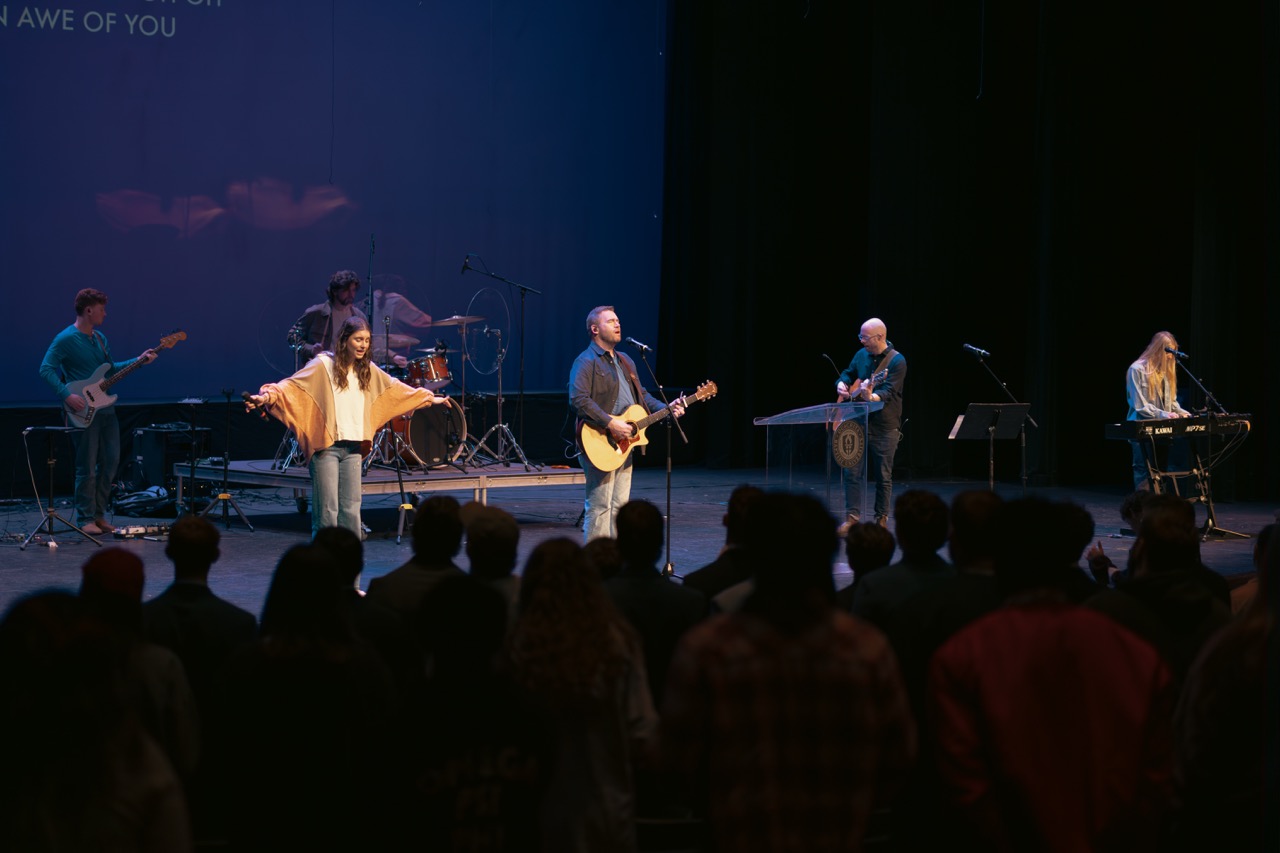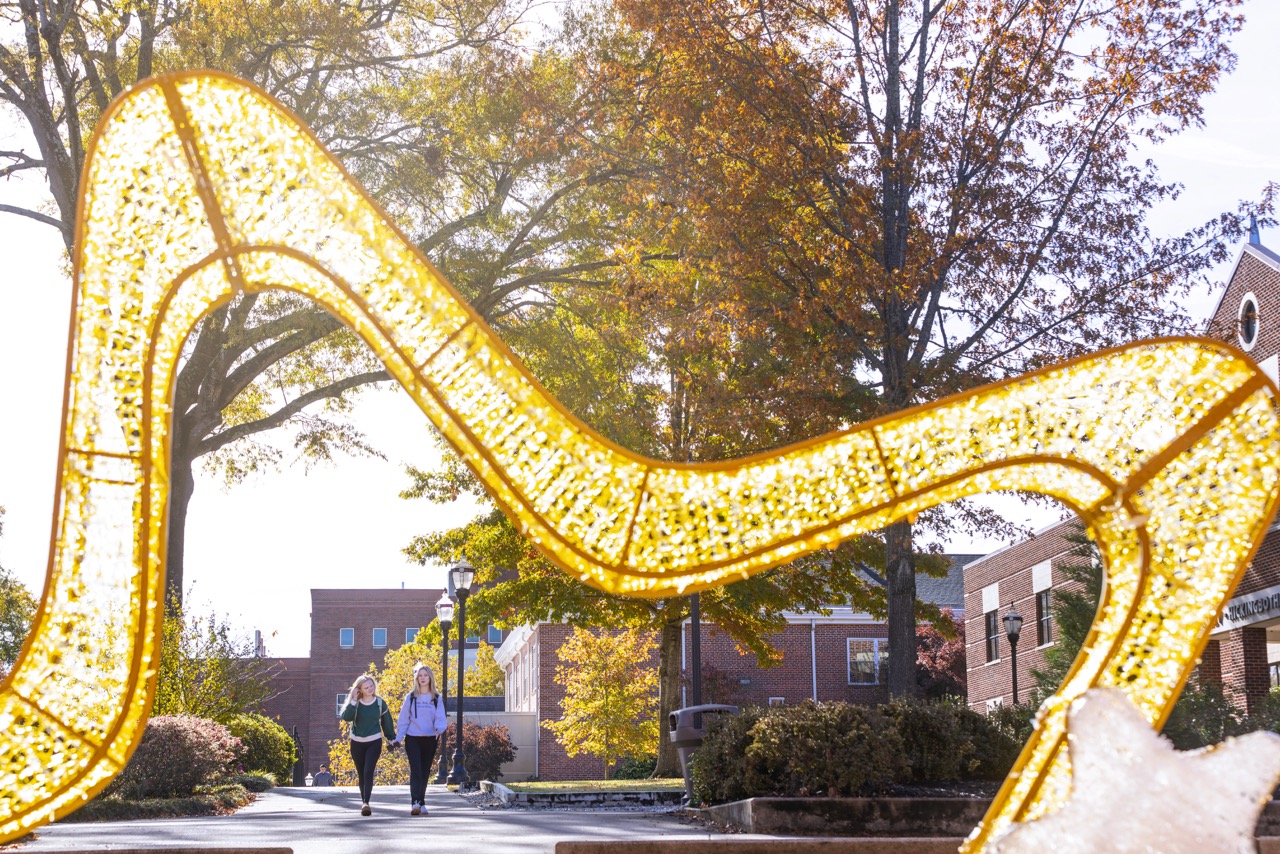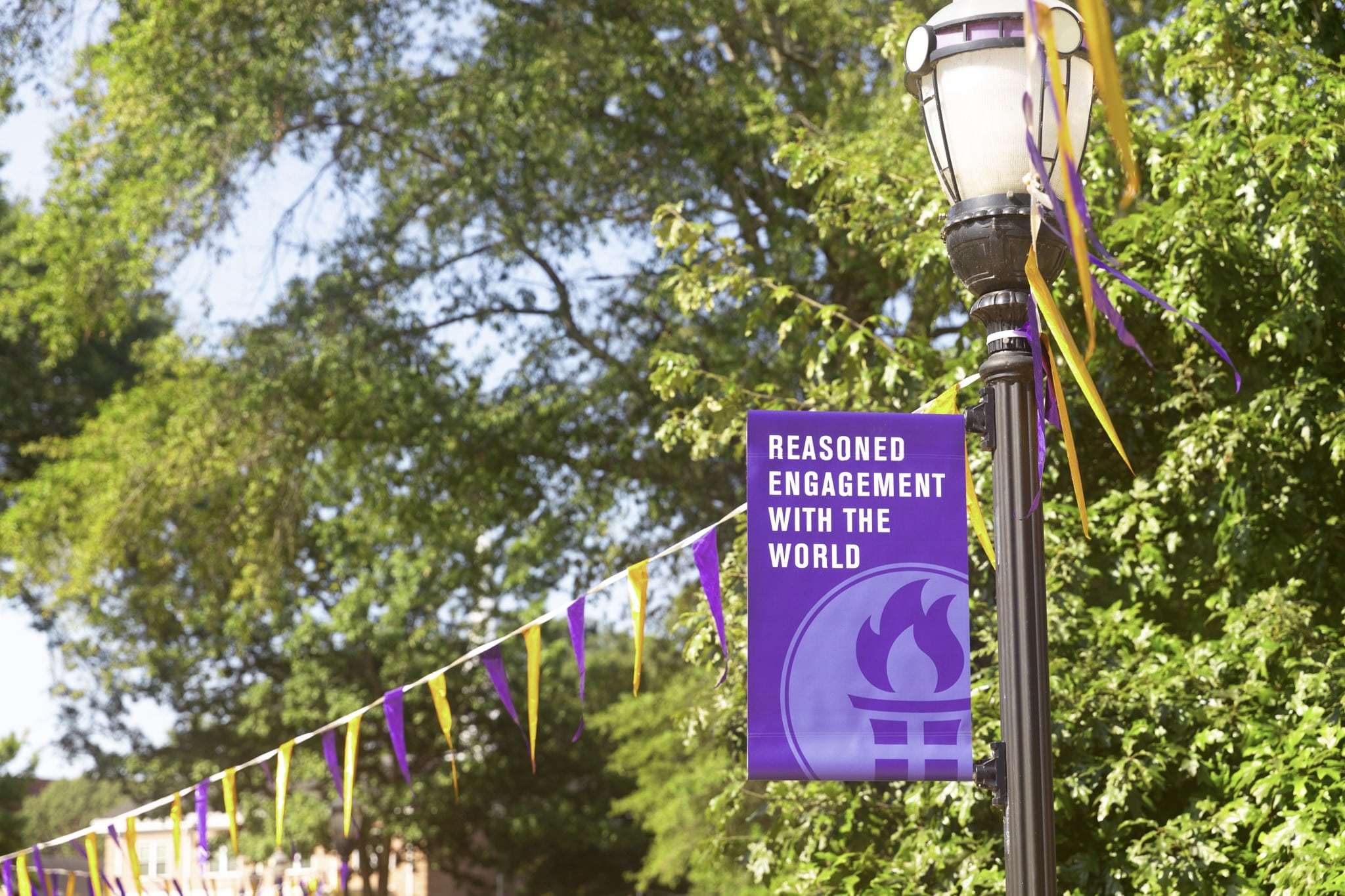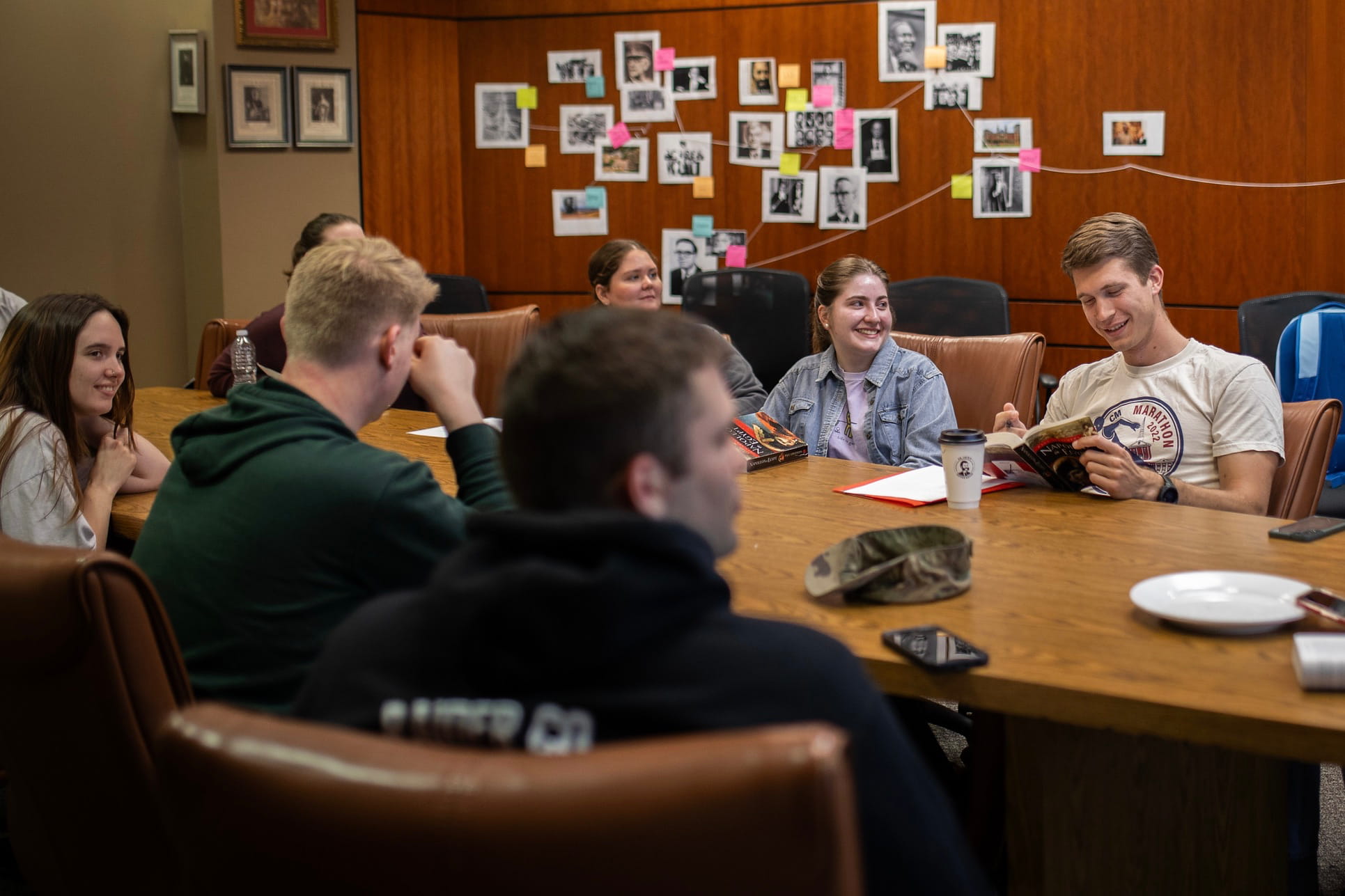Hope grows in a nourished imagination
2022 Convocation address
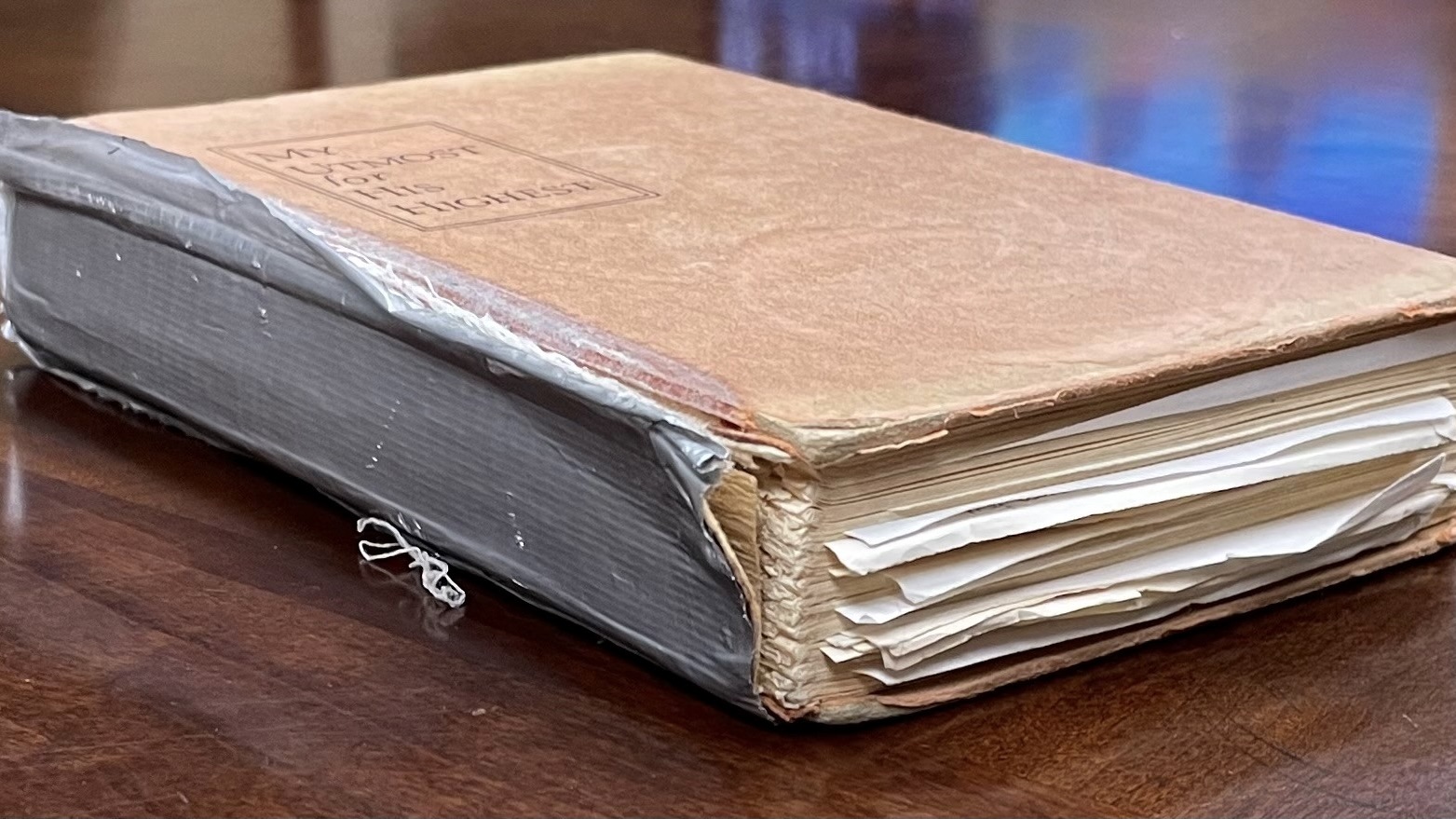 September 02, 2022
- Ben R. Sells
September 02, 2022
- Ben R. SellsI like Chapel and seldom miss attending. I like being with students in Chapel. There are probably fewer than 100 universities in the country where essentially the entire student body can all be together. In my first six years, I’ve appreciated how students respect and engage in Chapel. I believe it’s an important part of what makes Ouachita, Ouachita.
Each academic year, we choose a theme. This year, it’s “Love God and Love Learning” from our vision statement. We also develop a commemorative patch. You’ll find all the patches on my backpack. And it makes me happy when others display their patches.
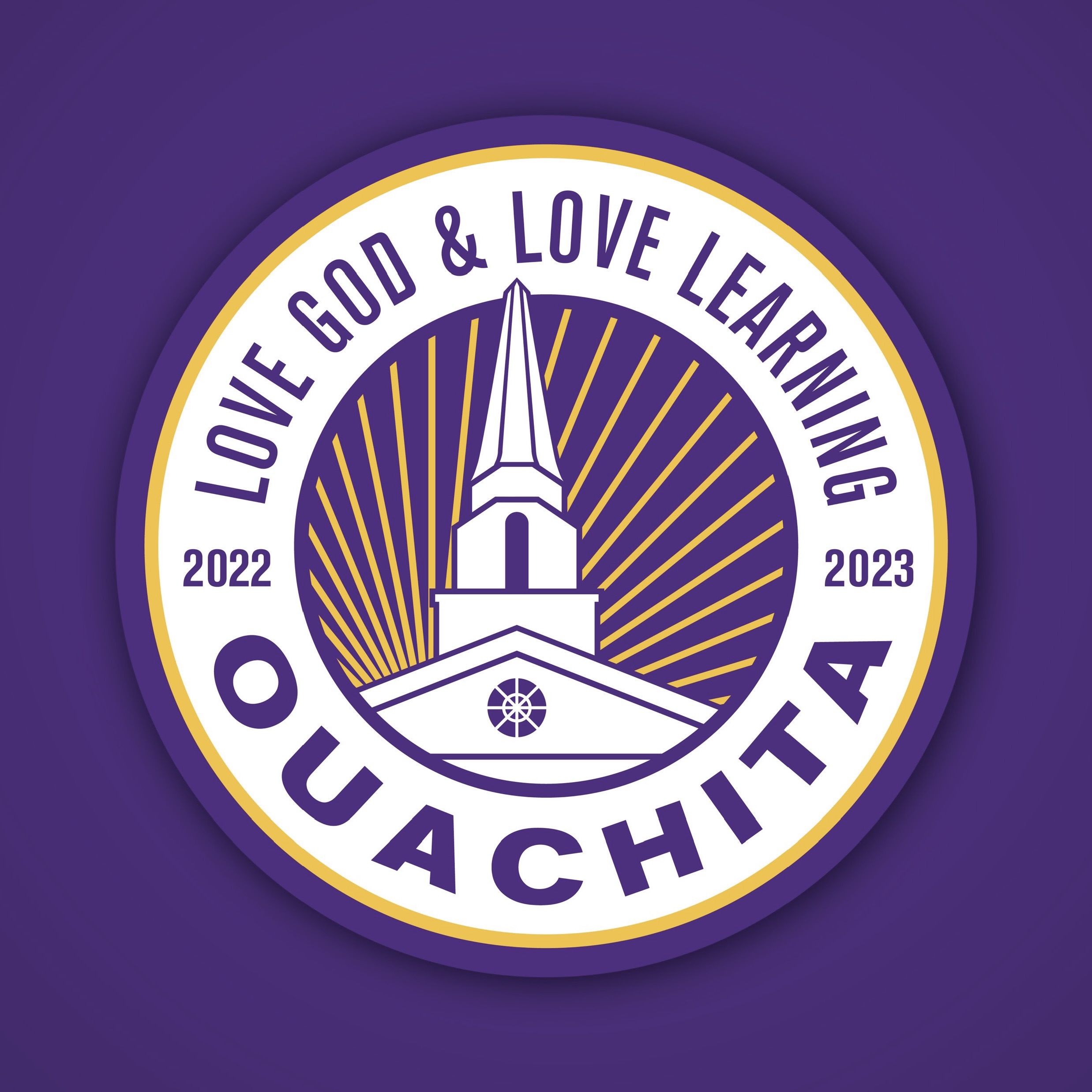 I want to tell a story about this book, called “My Utmost for His Highest.” It’s 60
years old and belonged to my parents. But to get to the story, I first need to reference
the television series, “This Is Us.” Lisa and I often ask students, “What are you
watching?” because it’s a way to know what’s popular in your world, and we often hear
great recommendations.
I want to tell a story about this book, called “My Utmost for His Highest.” It’s 60
years old and belonged to my parents. But to get to the story, I first need to reference
the television series, “This Is Us.” Lisa and I often ask students, “What are you
watching?” because it’s a way to know what’s popular in your world, and we often hear
great recommendations.
For the past six years, we watched the series “This is Us.” It follows the lives of Jack and Rebecca Pearson and their three children. A key theme is how the Pearson children respond to the deaths of their parents.
After the final episode last May, Lisa and I spent Memorial Day weekend with my three siblings and their spouses. We had a wonderful time of sharing stories and meals. I had a very emotional moment when I asked about my mother’s final days, something I hadn’t talked about with them before.
Fifteen years ago, my mother was diagnosed with cancer and died within six months, and my father died nine months after her. My two sisters, who lived closer to our parents, spent more time helping my dad care for my mom. At the time, Lisa and I lived an 11-hour drive from my parents. We knew Mom was really sick, and one week in February 2007, we had planned to go home knowing it might be the last time to see my mother. However, the very day we were leaving, she died.
We don’t always get to say goodbye to those we care about, but in this situation, it had been possible, and I missed it. I carried some frustrations with my parents because they hadn’t told me the end was so near. I carried regrets for not deciding on my own to go back earlier. Hearing my sisters explain that my parents hadn’t talked much about the end helped.
If I could have one last conversation with my parents, what would I talk about? Among other things, I would ask them why they read this book every day for the last decade of their lives. “My Utmost for His Highest” was published in 1935, and this is my parent’s 1963 edition.
One of the most popular Christian books ever, it contains 365 devotions based on talks given to college-age students by Oswald Chambers from 1911 to 1917. The book is especially meaningful because my parents wrote on every page. Reading it helps me understand what was important to them.
Duct tape holds it together – my father thought it could fix everything. They daily read their Bibles, but why this book? Why did they write in it so much?
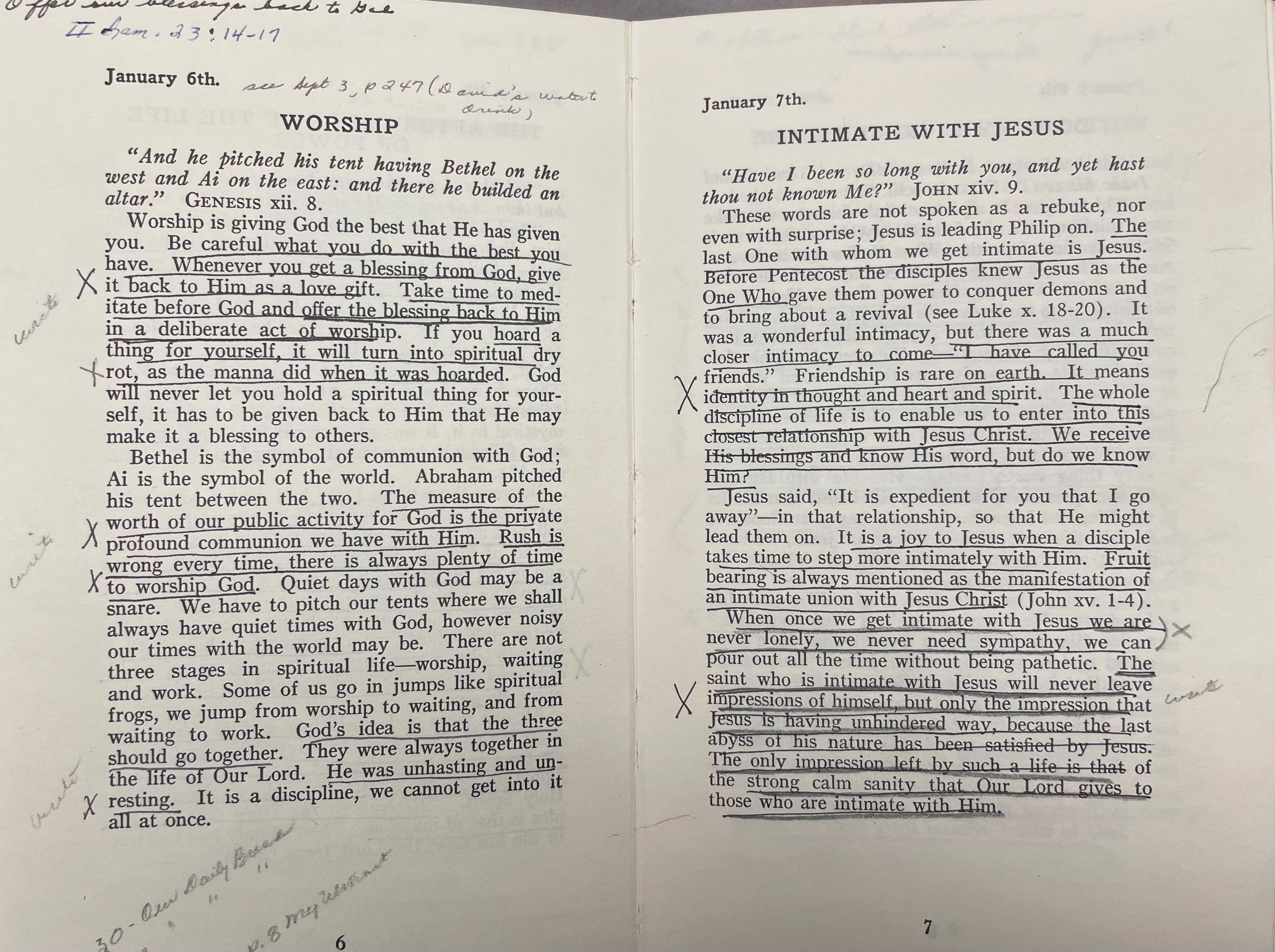 In reviewing this book over the summer and preparing for Convocation, I kept returning
to the only devotion where the title was highlighted by my parents: “Is Your Imagination
of God Starved?”
In reviewing this book over the summer and preparing for Convocation, I kept returning
to the only devotion where the title was highlighted by my parents: “Is Your Imagination
of God Starved?”
It begins with Scripture from Isaiah 40:26, “Lift up your eyes on high, and behold who hath created these things.” Introducing the devotion, the first sentence reads: “The people of God in Isaiah’s day had starved their imagination by looking upon the face of idols, and Isaiah made them look up at the heavens; that is, he made them begin to use their imagination aright.” (1)
Over the summer, I kept returning to Chambers’ words about imagination and the Christian life. Theologians have written on this important idea, but today I’m not drawing upon their work. Rather, this page captivated my interest. I would like to share three things that shaped my own imagination and prayer life the past couple of months.
First, human imagination is a gift from God, meant for good, and that’s encouraging.
We use our imagination all the time. As a child, seeing a tomato the first time, I imagined it tasted terrible. When I finally ate one, it was better than imagined.
For new students, you’ve imagined being at Ouachita – and you’re here! For seniors, you’re imagining life after graduation – and we’ll help! Perhaps some of you are using your imagination right now rather than listening to me.
In some way, human imagination lets us connect to a creative, beautiful, loving and just God. He imagined and created the universe from nothing. We can imagine something beautiful and then create it. We can imagine overcoming a problem and then solving it. We can imagine winning a competition, helping us play at a higher level. We can imagine helping someone who enables us to actually help them.
Your education and experience at Ouachita this year will stir your imagination in wonderful ways. I’m grateful for the gift of imagination – for our good and the good of others.
But second, because we live in a broken world, the human imagination can be starved – and that’s a warning we must heed.
Part of the human condition is using our imagination in ugly ways, harmful ways, sinful ways. We’ve all done it. This devotion highlighted by my parents caused a new thought for me: We can “starve our imagination.” When we starve something, it wastes away and slowly dies. Chambers’ devotional says we can starve our imagination by giving attention to idols.
“Idol” isn’t a word we often use. One author defines an “idol” as “anything more important to you than God, anything that absorbs your heart and imagination more than God, anything you seek to give you what only God can give.” (2)
All of us have made some things more important than God. We’re prone to take God-created good things and imagine and then live like they’re the best way – maybe the only way – to find a fulfilled life. They and other good things do bring a measure of fulfillment, but be warned: If they absorb our heart and imagination more than God, they become addictive – demanding more and more, and giving back less and less. That starves our imagination, which threatens our very lives.
So finally, rather than starving our imagination, we can nourish it, and that gives us hope.
The writer says, “look into the heavens.” Remember, this is 800 BC in the Middle East without pollution and electricity. When they looked up at the stars, it was brilliant.
And the people of God were reminded that their God – the God of the universe – was so much bigger and better than they could ever imagine. That the God who formed each star also formed them.
Maybe you’ve seen the brilliant pictures this summer from the James Webb Space Telescope. It orbits one million miles from earth. The images are stunning, and some are on the screen.
A hundred years ago, we thought there was just one galaxy. In 1995, the Hubble Space Telescope helped us realize there were thousands of galaxies. Now, some scientists estimate there are a trillion galaxies. (3)
When I saw the images, Isaiah 40:26 came to mind: “Lift up your eyes on high, and behold who hath created these things.”
And then I thought of Psalms 8:3-4: “When I consider your heavens, the work of your fingers, the moon and the stars, which you have set in place, what is mankind that you are mindful of them, human beings that you care for them?”
That God cares for us. For you.
With God’s help, our imaginations can be nourished and used in ways for our personal good and the good of others.
Someday, on the other side of eternity, maybe I can have a conversation with my parents about this book. Until then, because each devotion begins with Scripture, I can imagine it fostered their love of God. Because their notes underscore important truths, I can imagine it nurtured their love of learning.
Students, faculty and staff – this is us, Ouachita – beginning our 137th year. Let’s give ourselves to loving God and learning. Let’s live in ways that nourish rather than starve our imaginations.
In doing so, we’ll experience a year that will exceed our imagination.
Thank you.
Sources:
- Oswald Chambers, My Utmost for His Highest (New York: Dodd, Mead & Co., 1963), 41.
- Tim Keller, Counterfeit Gods: The Empty Promises of Money, Sex, and Power, and the Only Hope that Matters (New York: Penguin Books, 2011), xix.
- Philip Yancey, “When you feel small, look to the cosmos and the cross.” Christianity Today, August 24, 2022.
You Also Might Like
Recent
Ouachita reports Spring '26 enrollment, led by 50% increase in graduate students
February 11, 2026
